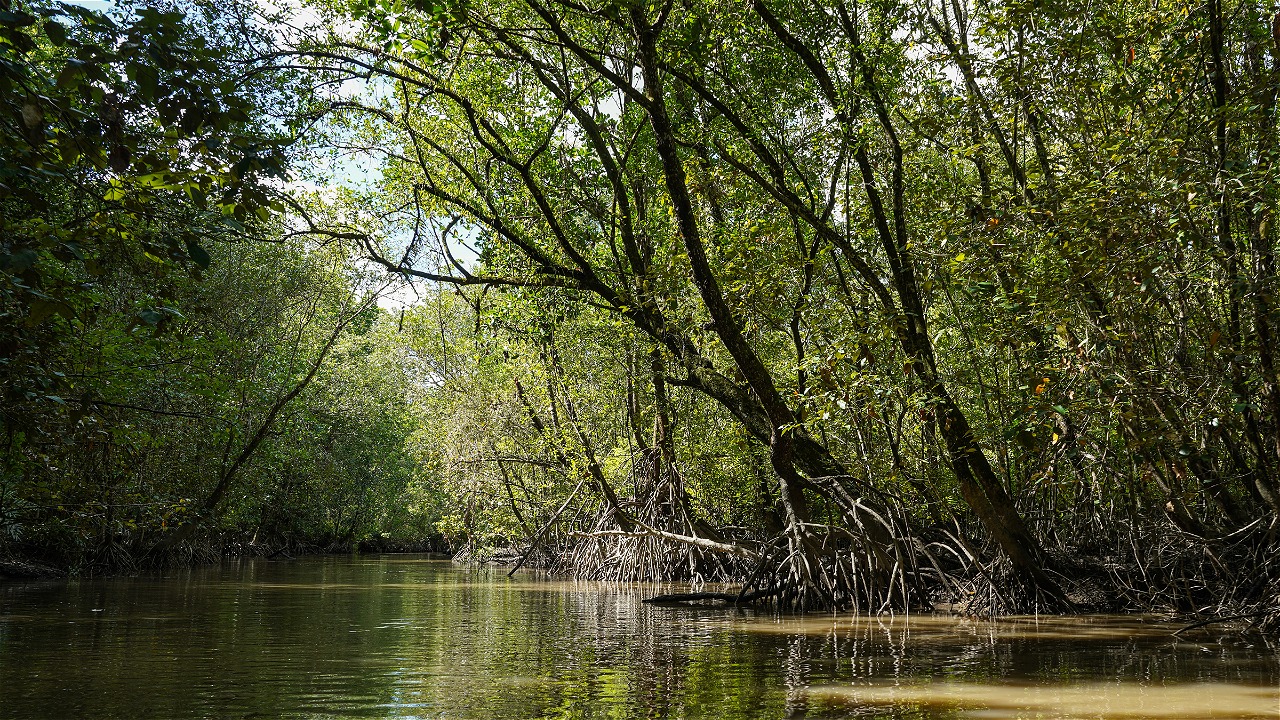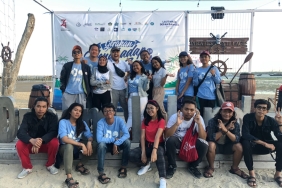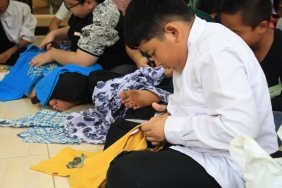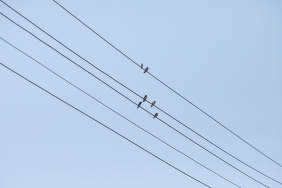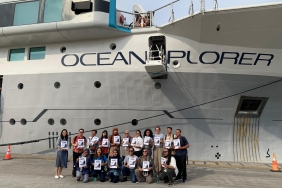VISIT OF STUDENTS OF UNIVERSITAS MUHAMMADIYAH YOGYAKARTA TO PANDA LAND
By: Fina Belia (Volunteer Bumi Panda)
It turns out that Bumi Panda is not only a destination for students, college students, and communities in the Bandung area to gain insight into the environment. On Friday (10/14), 60 students from Universitas Muhammadiyah Yogyakarta visited the environmental information house managed by WWF-Indonesia. The sophomores majoring in International Relations from Yogyakarta included Bumi Panda in their list of study tour visits to Bandung to get to know WWF-Indonesia better. One of the reasons is because the material related to Non Governmental Organization (NGO) is included in the course that they are currently studying on campus. WWF-Indonesia itself is known as one of the largest NGOs in Indonesia related to environmental conservation efforts and rare animals in Indonesia.
The students, accompanied by one of their lecturers, arrived at Bumi Panda at 12:30. Before the event started, they took a break for lunch and zuhur prayer. Unfortunately, students were still seen using Styrofoam as their lunch container. This later became an important point raised during the discussion.
The event was opened with a welcome and introduction of WWF-Indonesia. In the opening, Sani Firmansyah as the Coordinator of Bumi Panda reminded the students about the use of Styrofoam. "The styrofoam containers that you use contribute to environmental pollution because they are not biodegradable. And until now, the management of the styrofoam waste is still poorly managed and mostly thrown away. I would like to invite you to start reducing the use of Styrofoam," said Sani.
During the opening session, Muhammad Takdir, a lecturer from Universitas Muhammadiyah Yogyakarta, expressed the purpose of their visit. "From this visit, we want to learn about WWF-Indonesia itself. Hopefully, we can start an environmentally friendly lifestyle, one of which is to reduce the use of styrofoam packaging," he hoped.
The activity then continued in two groups. One group was in the experience room to make cloth bags from used t-shirts and another large group went into the water lab to watch the movie "Rivers for All" and make water observations.
The students who made cloth bags from used t-shirts were quite enthusiastic because this was their first time making their own cloth bags. Not only making cloth bags, they took the initiative to draw and color their own cloth bags to make them look more attractive. Some groups drew a Panda which is the logo of WWF, some wrote the slogan "Save Our Earth" and "Save Shark". Apparently, they already know WWF and some of the programs that have been carried out by WWF such as Javan rhino conservation and Earth Hour campaigns.
The group that entered the water lab received an explanation of the conservation efforts undertaken by WWF-Indonesia in the Freshwater Development Program located in Rimbang Baling, Riau. As an introduction, participants watched the movie "Rivers for All" which showed the condition of Rimbang Baling in Riau. The aim was to find out the actual condition of the habitat of several protected animal species and what makes the environmental conditions there increasingly worrying, such as the opening of coal mines and expanding oil palm plantations. "The people in Rimbang Baling have a local wisdom where they are tasked to jointly protect the river. This can be seen from their culture of harvesting fish from the 'Lubuk Larangan' where all communities in Rimbang Baling are only allowed to harvest fish at certain moments and only take enough for their needs," explained Sani.
The highlight of the UMY student visit was a discussion on the theme "Buy Good", a major campaign carried out by WWF-Indonesia. The students were invited to watch the campaign video "Buy the Good" and continued with the introduction of environmentally friendly products to become wise consumers in choosing products that come from nature. "We can all help WWF-Indonesia's conservation efforts by buying products with eco-friendly labels. The labels include FSC for products derived from wood, RSPO for products derived from palm oil, MSC and ASC for food derived from the sea," said Dwi Widya Mutiara, Bumi Panda volunteer. Dwi also explained that using products that are not environmentally friendly means that we are contributing to the unsustainable extraction of natural resources, for example, the use of tissue or paper that comes from trees that are cut down without replanting and destroying the habitat of the animals that live in them.
Questions also arose in the discussion session, one of which arose from Dita, a UMY student. "What are examples of real efforts that WWF-Indonesia has made (related to animal protection -Red)?" she asked. Sani then explained one of the efforts made by WWF-Indonesia in protecting sea turtles. Among other things, by providing education to the public and conducting various approaches related to sea turtle protection efforts. Another concrete form is by raising donations from the public through "Turtle Warrior", "Sahabat Penyu", and "Turtle Hope" which are then used by the WWF-Indonesia team in monitoring turtles, including turtle data collection, predator control, and relocation of turtle eggs to safer places so that they can hatch and return to the ocean.

